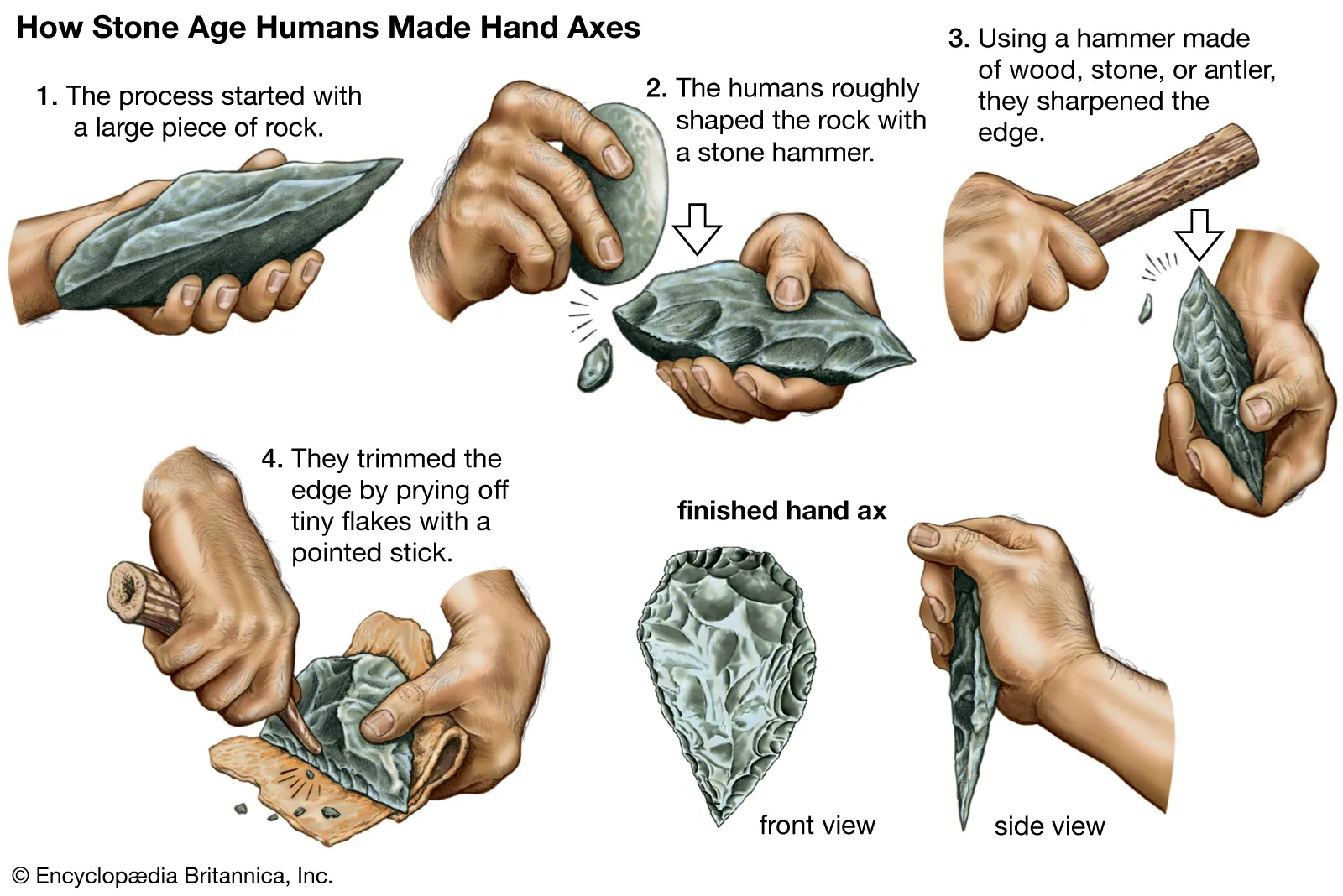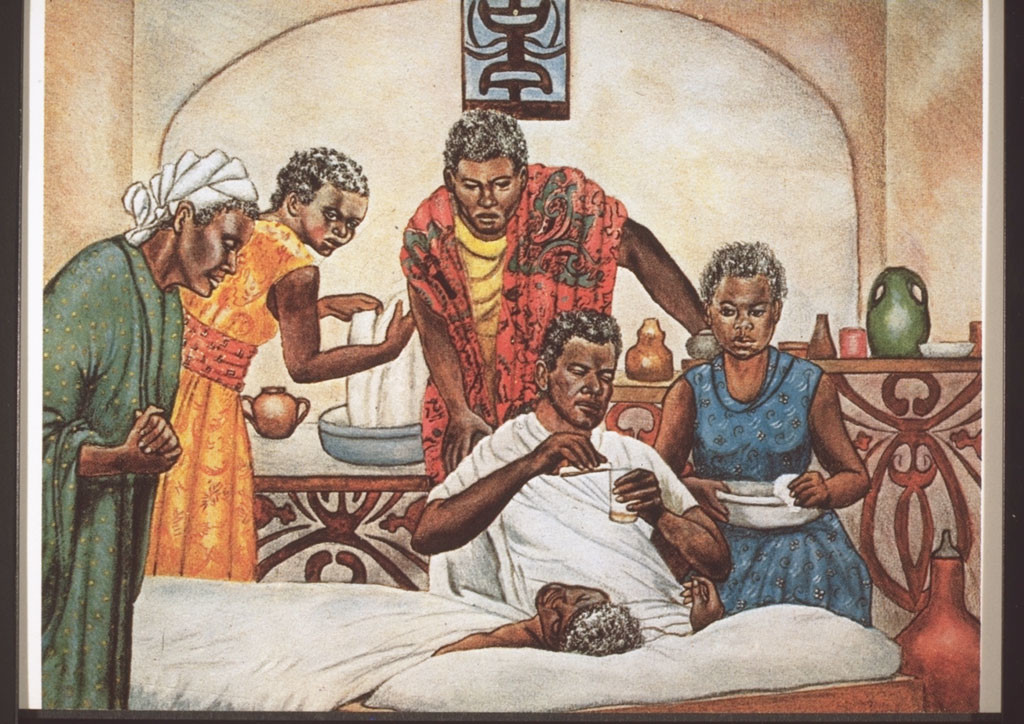Is Africa the birthplace of technology? The answer may surprise you.
Celebrated as the cradle of humanity, she also holds the distinction of being the birthplace of technology itself. The evidence is compelling. The world’s oldest stone tools, dating back a staggering 3.3 million years, were unearthed in eastern Africa. These tools, created by unidentified hominins, offer a glimpse into the continent’s early technological prowess.
Yet, as we explore the hidden annals of Africa’s technological legacy, we must also confront a painful truth. Our tech infancy, filled with promise, was derailed by the heavy yoke of colonialism and the enduring legacy of slavery. These forces reshaped our destiny, diverting the course of our potential.
For millennia, Africa’s soil bore the weight of an abundance of riches – vast mineral resources that could have propelled her infant “Technology” to unparalleled heights of innovation and development.

Read More: Africa’s Top 5 Safest Countries to Explore in 2023
Today, Africa carries the weight of the label ‘third world,’ but could this classification be a consequence of the shadow cast by our colonial past and the echoes of economic exploitation that continue to reverberate through the years?
It’s time to uncover the hidden truths about Africa’s technological heritage – a narrative brimming with the promise of what could have been. As we embark on this journey, we must ask ourselves: Can the reclamation of our technological roots spark a new era of hope and pride for the generations of African tech pioneers yet to come?
Unearthing History
To understand Africa’s technological narrative, we must revisit history:
- Homo habilis, residing in eastern Africa, forged the Oldowan tool industry approximately 2.3 million years ago.
- Homo erectus introduced the Acheulean stone tool industry, including hand-axes, 1.5 million years ago. This innovation not only advanced technology but also spread to the Middle East and Europe.
- Homo sapiens, modern humans, displayed remarkable ingenuity by crafting bone tools and backed blades 90,000 to 60,000 years ago in southern and eastern Africa. These innovations would become hallmarks of the Later Stone Age.
The Secrets of Art and Chemistry
Africa’s technological contributions extended beyond tools. The continent boasts the world’s oldest abstract art, with a shell necklace dating to 82,000 years ago in Morocco. The second oldest abstract art and rock art, dating to 77,000 years ago, were discovered in South Africa. These artistic achievements reflect the creative spirit that has long defined Africa.
Additionally, evidence suggests that ancient Africans possessed early knowledge of chemistry, using specific recipes to create liquefied ochre-rich mixtures. This discovery challenges conventional narratives about the development of chemistry.
Read More: The African Renaissance –A Stage for Creativity and Technology
A Legacy of Scholarly Pursuits
Throughout history, Africa has been a hub of knowledge. The Library of Alexandria, founded in Egypt in 295 BC, stood as the world’s largest library. Al-Azhar University, established in Egypt around 970-972 AD, remains a beacon of Arabic literature and Sunni Islamic learning.
Timbuktu: A Center of Learning
In West Africa, Timbuktu emerged as a major center of learning during its “golden age” from the 14th to the 16th centuries. It hosted several madrasas, or Islamic schools, where scholars pursued diverse fields of study, including Qur’anic studies, Arabic language, and Islamic theology.
Astronomy: A Forgotten Legacy
Astronomy found its place in African innovation as well. The ancient Nubians created one of the world’s oldest known archeoastronomical devices around 4800 BCE. Egypt’s pyramids offer further evidence of early astronomy.
Today, Africa continues to advance in astronomy, hosting major observatories and contributing to our understanding of the cosmos.

Read More: Paws and Tech: Top 5 Tech Pet Innovations in Africa Homes
A New Beginning?
As we unveil Africa’s hidden technological legacy, we must confront uncomfortable truths. The classification of Africa as a “third world” continent is a legacy of its colonial past and the dark chapter of slavery. But could this revelation serve as a catalyst for a new generation of proud African tech pioneers? Could Africa reclaim its place as a technological powerhouse? The questions loom large, challenging us to reevaluate our understanding of history and the potential of a continent whose past and future are intricately intertwined with innovation.
Our Story So Far. Your Dreams Matter, Your Stories Matter #DreamsTalks #AfricantechSpace pic.twitter.com/seZElwurGq
— Africanian News (@africaniannews) July 3, 2023
Disclaimer: The opinion of the author don’t necessarily reflect that of Africanian News.









